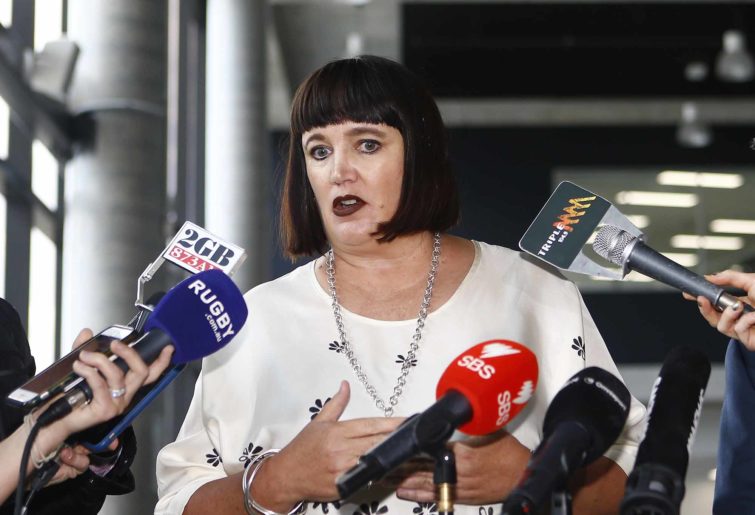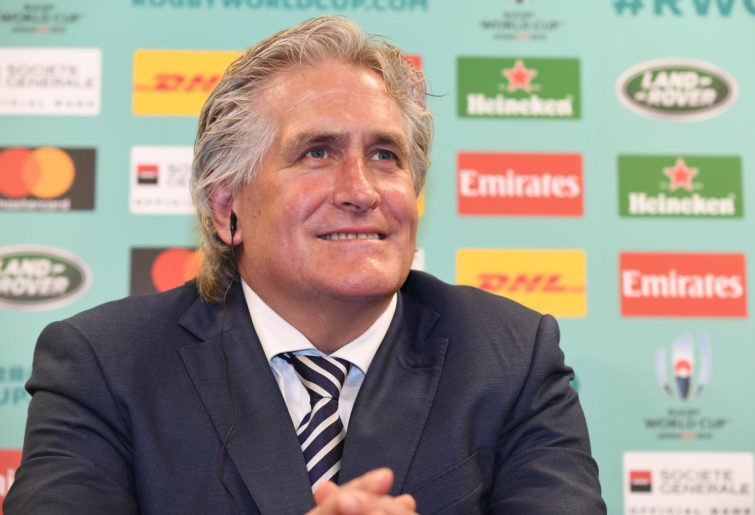For a country as high-tech as South Korea is, the lantern light with a hanging drawstring above my hotel desk seemed quaintly old-fashioned.
“I can’t seem to get the light to turn off”, I explained to the receptionist. “Nothing happens when I pull the string.”
“Pull harder. It’s no problem”, she said, in an undeniably assuring tone. “Pull on the string, very hard. Don’t worry, it can’t be broken.”
I did as I was told, pulling on the string, harder than Sebastien Vaahamahina throws an elbow. There was a loud pop and it all came out in my hands, light still on.
I got back on the phone. “Any other helpful advice?” I asked, trying not to sound sarcastic.
Leaving the hotel staff to make repairs I adjourned to a nearby bar for a local beer, called ‘Cass’. Music trivia buffs might be interested to know that it was offered without a ham sandwich.
Thankfully, my short sojourn to the border with North Korea the following day proved to be less eventful. With access to tunnels in the demilitarised zone shut off due to concerns over African swine fever, views across the border were limited to peering out across barbed wire and a river from a bus.
And while the tour guide insisted that the white structures we could see were North Korean army buildings, I could have sworn they were rugby goalposts, ready for Matt Todd to lie down against.
Kim Jong-un looks every inch an ex-front rower who would love nothing more than to capitalise on the momentum built for rugby in Asia during this World Cup – look for a hosting bid in 2027, just to stick it to the Americans.
There are tensions too, remaining from the pre-war period when Korea was subject to Japanese colonial rule from 1910 until 1945. While Japan may have done a brilliant job with this World Cup, visiting South Korean Prime Minister Lee Nak-yon was reportedly not as enamoured of Japanese Prime Minister Shinzo Abe’s hosting prowess this week, as rugby fans have been.
South Koreans go about their daily lives like any of us would, under no immediate threat. But an amble through Seoul’s War Memorial Museum – impressively sombre as all these places are – leaves no doubt that Koreans are acutely aware of what are for the recent conflicts, and view the 1950-53 war in particular as ‘the unfinished war’.
Also far from unfinished is the internal war Australian rugby seems determined to wage in the wake of last weekend’s disappointing quarter-final exit at the hands of England.
With truth an inevitable casualty in any war, misinformation and propaganda has been the norm this week with an array of commentators calling for other heads to roll in addition to that of head coach Michael Cheika.
Criticism of CEO Raelene Castle has been loud and strident, although marked by emotion, incoherence and contradiction rather than logic. On one hand, Castle is slammed for not being strong enough to sack Cheika last year; on the other she is berated for not providing him with enough support and for having a “fractured relationship” with the coach.

(AAP Image/Daniel Munoz)
Others like Greg Martin waded in, wanting Castle to be held responsible for events that had their genesis long before she took the CEO position last year, yet in the same breath citing the success this year of Australia’s schoolboy and under-20 teams – outcomes that can be tied to her watch.
Martin wasn’t asked for, nor offered, any explanation as to why Castle should take the blame for the Wallabies losing, but not the credit for the schoolboys and under-20’s winning.
Typically for those involved in the skirmishing in and around Australian rugby, there is little understanding of, or credence given to, governance structures. Want to turf out the board or CEO, or ‘blow up’ Australian rugby? No problem, just say it loud enough and often enough in the media and it must happen.
If you’re one of those wondering why the Rugby Australia board should sack themselves just because Marto says so, ask what the chances are of Ben Skeen volunteering to fly home early from Japan because he’s suddenly realised that he’s letting rugby down?
Or perhaps you’re wondering why the board should sack the CEO it appointed only 18 months ago, just because the Wallabies lost a quarter-final under a coach she didn’t appoint?
Because Marto wants his mate Phil Kearns in the job? Because Alan Jones doesn’t want a woman or a ‘foreigner’ in the job? Because blowing a million dollars on a payout to Castle for no justifiable reason is good business practice? Or because angry fans baying for blood deserve some dead meat tossed their way, just for the sake of it?
Take your pick.
That seemed to be the extent of it, until Jamie Pandaram from Sydney’s Daily Telegraph tried to manufacture a fifth reason, suggesting that news of a spat between Cheika and Castle at the Australian Embassy in Tokyo had “plunged Rugby Australia’s legal case against Israel Folau into chaos.”
Wake me up when all of this nonsense is over, please.
One thing that actually is vitally important over the next few months is the performance of Director of Rugby Scott Johnson. Not in his role to appoint a new Wallabies coach, as crucial as that is, but to assert himself as the rugby face of Rugby Australia – to assure fans that there is an experienced rugby person at the helm, alongside and supportive of the CEO.

(Photo by Atsushi Tomura/Getty Images)
The last publicised spying event between North and South Korea was a submarine incident that occurred in 1996, although many people believe that spying to some extent is an everyday occurrence.
Which is essentially how England’s claims that somebody – ‘possibly related to the All Blacks, but we’re not saying it’s them’ – was spying on their training sessions ahead of the semi-final, were treated. Yeah, whatever.
It was a strange start to the week, first with the ‘Johnny English’ spy non-story, then Eddie Jones making a half-hearted attempt at shifting pressure onto the All Blacks by suggesting that mental skills coach Gilbert Enoka would have his hands full dealing with anxious players.
“We don’t have any pressure, mate”, Jones explained at a press conference. “No one thinks we can win. There are 120 million Japanese people out there whose second team are the All Blacks. They [the All Blacks] have got to be thinking, they’re looking for a third straight World Cup, so there will be pressure there.”
Not quite the same pressure as in 2011, I wouldn’t have thought, nor even in 2015 when the All Blacks won back-to-back. After their quarter-final win against Ireland, coach Steve Hansen talked about sides like Ireland and England being full of experienced players, but not of players who had the experience of playing through to the end of long tournaments and winning a World Cup.
The pressure of trying to win a third World Cup in a row versus the benefit of having been there twice before, knowing exactly what it takes to get the job done? Which do you think carries more weight?
Next thing Eddie will be trying to tell us his ego couldn’t cope with Rugby Australia coming to him cap in hand to sound him out again about the Wallabies coaching position.
As it happens, the All Blacks under Hansen have often performed muddlingly when there has been little at stake, and reserved their very best for when the pressure to perform has been at its highest.
In that context it was interesting to read a story about pressure in Friday’s Japan Times outlining a study from the University of Richmond, Virginia, which found not only that rats can be trained to drive cars, but the ones that are trained to do so are less stressed when driving than when they are passengers in a vehicle driven by a human.
This is great news for people who may be anxious about submitting themselves to driverless car technology, but who may now be prepared to accept a ‘halfway’ solution, eg a rat driving their car. And it also shows that rats are just like us – happy when in control of the wheel, tensed up monsters when a spouse or partner is driving.
In the other ‘forgotten’ semi-final on Sunday, Wales will be hoping that African swine fever of a different sort doesn’t strike them down. But the way in which the Taffies escaped from their quarter-final against France all but guarantees there will be no spare luck going their way against the Springboks.
South Africa are one of the elite defensive sides in this competition; the assertive and super-efficient manner in which they handled everything Japan threw at them last week one of my highlights of the Cup so far.
If, as expected, the Springboks make it through to the final, they’re going to be very hard to beat. Even harder than Japan’s breweries are having to work right now to keep up sufficient beer supplies for the visiting rugby fans, whose numbers have visibly swollen over the last few days.
And perhaps even harder than turning that light off in my hotel room.






























































































